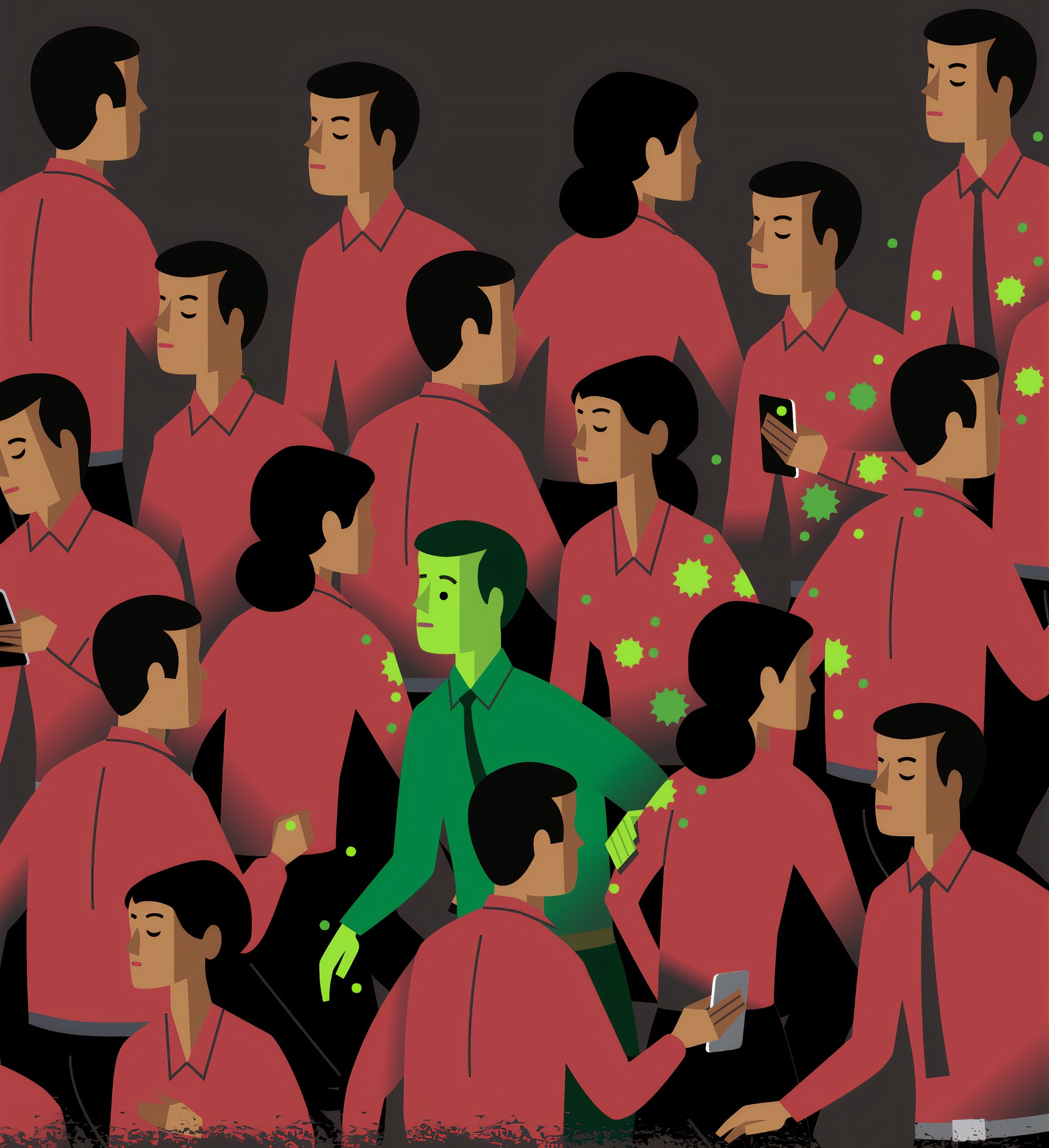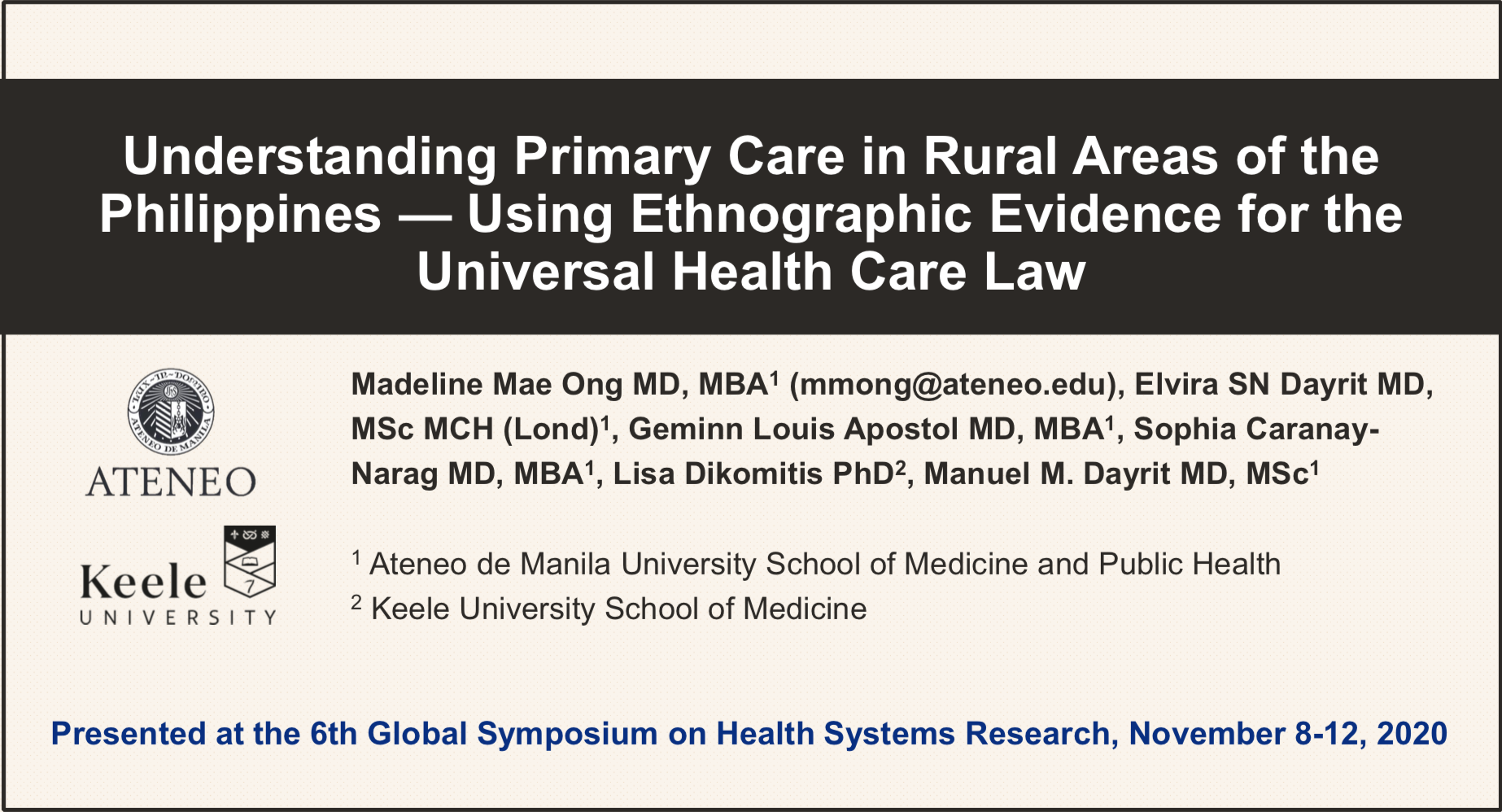Health Systems
Visit the LibraryOn policies, processes, and interventions that impact our complex health system in order to achieve collective health goals
Featured Publications

Health Systems
Deriving Lessons on Legislating Universal Health Care in the Philippines: A Historical Perspective (UHC Study)
The study aimed to inform future attempts to legislate health agenda and help the national and local governments prepare for challenges and manage risks in the implementation of the law.

Health Systems
The Role of the Private Health Sector in UHC: Challenges and Opportunities in Asia
This research aims to investigate how Japan, Thailand, and the Philippines engage their private sectors when implementing UHC.

Health Systems
Developing Omnibus Policies of Existing Issuances on Local Government Units and Health Systems for the Department of Health (Omnibus Project)
This research project dealt with issuances of the Department of Health, as well as related laws and issuances from other government agencies.

Health Systems
Resilient and People-Centred Health Systems: Progress, Challenges and Future Directions in Asia
Despite varying nature of Asian countries and their health systems, this new comparative country study, published by APO, highlights future opportunities and threats that they all have in common.

Health Systems
Early response to COVID-19 in the Philippines
We describe the early response of the Government, focusing on travel restrictions, community interventions, risk communication and testing, from 30 January 2020 to 21 March 2020.

Health Systems
Newton Fund Researchers Links Workshop On Utilizing Mathematical Modelling to Aid Governance in UHC in the Philippines (upcoming)
This week-long workshop, funded by the Newton Fund, is a collaborative effort between the Ateneo School of Medicine and Public Health and Public Health England.

Health Systems
Experiences and satisfaction of high-risk mothers who gave birth in select facilities in Legazpi City, Philippines
Among the interventions implemented to curb maternal mortality in the Philippines, service delivery networks (SDNs) have been one of the most important. However, due to their recent implementation, frameworks to assess the quality of care they provide have not yet been established.

Health Systems
Understanding Primary Care in Rural Areas of the Philippines — Using Ethnographic Evidence for the Universal Health Care Law
"Understanding Primary Care in Rural Areas of the PH — Using Ethnographic Evidence for the Universal Health Care Law" presented at the 6th Global Symposium on Health Systems Research

Health Systems
The Hidden Crisis: How Health Workforce Issues Are Undermining Universal Healthcare in the Philippines
The Philippines, one of the world's largest exporters of healthcare workers—particularly nurses—is struggling to retain professionals needed to implement its UHC vision. With only 7.92 physicians per 10,000 population (below the ideal ratio of 10 per 10,000) and an estimated shortage of 127,000 nurses, the country faces acute shortages that prevent optimal implementation of health programs.

Health Systems
Measuring and Understanding Geographic Inequities in Physician Distribution in the Philippines
Access to quality health care in the Philippines is shaped not only by the availability of physicians, but also by how equitably they are distributed across regions. Many communities, particularly in rural and geographically isolated areas, continue to face limited access to medical professionals, while urban centers often see a concentration of physicians and specialists. The project Measuring and Understanding Geographic Inequities in Physician Distribution in the Philippines seeks to address this challenge by providing a clear, evidence-based picture of physician maldistribution nationwide.

Health Systems
Health workforce issues and recommended practices in the implementation of Universal Health Coverage in the Philippines: a qualitative study.
The Philippines' Universal Health Coverage program faces a critical workforce crisis that threatens its very foundation. A new Ateneo de Manila University study reveals that while the country exports healthcare workers globally, it struggles to retain the professionals needed for its own ambitious health reforms. With only 7.92 physicians per 10,000 population and a shortage of 127,000 nurses, systemic barriers—from restrictive hiring policies to uncompetitive salaries—are driving away the very people meant to deliver healthcare for all Filipinos. The research identifies promising solutions, including scholarship programs and comprehensive benefits, but warns that without addressing these fundamental workforce issues, universal healthcare remains at risk.
More on Health Systems
-
Health Systems > Projects
Deriving Lessons on Legislating Universal Health Care in the Philippines: A Historical Perspective (UHC Study)
The study aimed to inform future attempts to legislate health agenda and help the national and local governments prepare for challenges and manage risks in the implementation of the law.
Dr. Madeline Mae Ong, Dr. Manuel M. Dayrit
-
Health Systems > Projects
The Role of the Private Health Sector in UHC: Challenges and Opportunities in Asia
This research aims to investigate how Japan, Thailand, and the Philippines engage their private sectors when implementing UHC.
Dr. Manuel M. Dayrit, Dr. Madeline Mae Ong
-
Health Systems > Projects
Newton Fund Researchers Links Workshop On Utilizing Mathematical Modelling to Aid Governance in UHC in the Philippines (upcoming)
This week-long workshop, funded by the Newton Fund, is a collaborative effort between the Ateneo School of Medicine and Public Health and Public Health England.
Dr. Manuel M. Dayrit, Dr. Madeline Mae Ong
-
Health Systems > Projects
Developing Omnibus Policies of Existing Issuances on Local Government Units and Health Systems for the Department of Health (Omnibus Project)
This research project dealt with issuances of the Department of Health, as well as related laws and issuances from other government agencies.
Dr. Manuel M. Dayrit, Geminn Louis C. Apostol, MD, MBA, MSc, PhD (c)
-
Health Systems > Projects
Secondary data analysis of surveys and other routine data for better health outcomes and improved health service delivery
A data analysis project funded by the Ateneo de Manila University Research Council as a proof-of-concept for the establishment of a data analytics laboratory at the Ateneo School of Medicine and Public Health.
Veincent Christian F. Pepito
-
Health Systems > Projects
Mathematical Modelling for Universal Health Care in the Philippines
A project funded by the Newton Fund and the Philippine Council for Health Research and Development which aims to train a cadre of mathematical modellers to aid the implementation of the nascent Universal Healthcare Act in the Philippines.
Veincent Christian F. Pepito
-
Health Systems > Projects
Measuring and Understanding Geographic Inequities in Physician Distribution in the Philippines
Access to quality health care in the Philippines is shaped not only by the availability of physicians, but also by how equitably they are distributed across regions. Many communities, particularly in rural and geographically isolated areas, continue to face limited access to medical professionals, while urban centers often see a concentration of physicians and specialists. The project Measuring and Understanding Geographic Inequities in Physician Distribution in the Philippines seeks to address this challenge by providing a clear, evidence-based picture of physician maldistribution nationwide.
None
